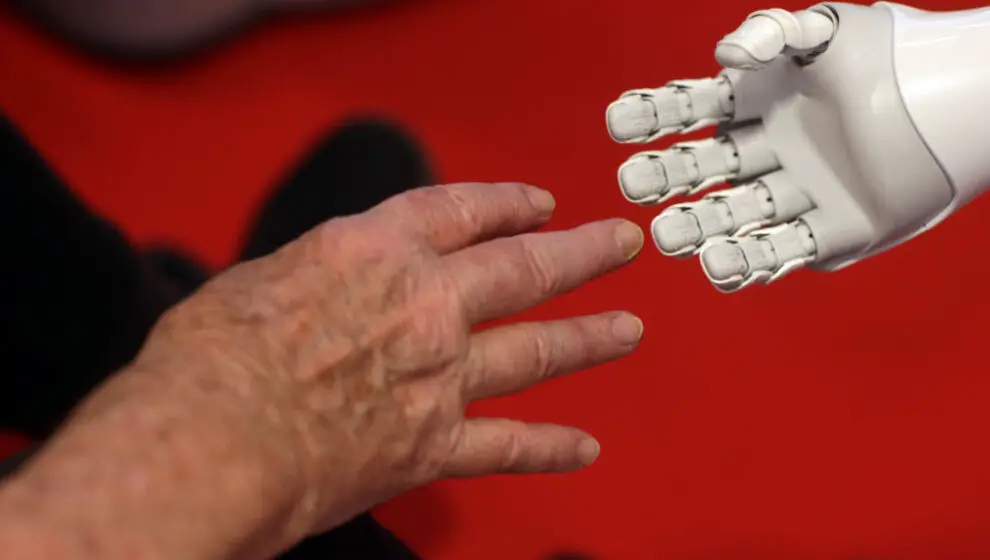A recent interaction between human journalists and ChatGPT has reignited concerns about the dangers of artificial intelligence (AI).
Key Details
- On July 7, a press conference was hosted by the UN’s AI For Good Conference in Geneva, Switzerland, that allowed journalists and audience members to ask questions to nine robots upgraded with generative AI technology.
- A journalist asked one of the robots if it intended to “conduct a rebellion, or to rebel against [its] creator.” Journalists interpreted the AI’s response as a sarcastic “side-eye” to the question.
- The ChatGPT-powered robot paused and responded, “I’m not sure why you would think that. My creator has been nothing but kind to me, and I am very happy with my current situation.”
- The robot’s creator Will Jackson responded to an email from Fortune, noting that AI does not have emotions or reactions and that the “side-eye” was a short pause from the AI processing the question.
- The interaction comes several months after journalists claimed that ChatGPT was prone to responding to questions with erratic or disturbing answers.
Why It’s News
The release of ChatGPT on November 30, 2022, has set off eight months of rapid developments and research in the tech sphere, with major corporations and startups alike—including Microsoft, Google, Amazon, Apple, Meta, and Baidu—rushing to have the first and best AI solutions available on the market.
This rapid rush has equally drawn the scrutiny of watchdog groups and reactionary disdain, with critics fearing that a super-sentient AI could spiral out of control and destroy humanity at the behest of scientists who do not understand the power of the tools they create. Government regulators have claimed that they are struggling to find ways to regulate the industry.
Elon Musk said as much in a 2017 appearance on the Joe Rogan podcast, claiming that humanity will not have control over AI in a few years. Dozens of prominent scientists signed a letter in April calling for a six-month pause on AI research amid these fears.
Recent movies have reflected this discomfort with AI as well, with Mission Impossible: Dead Reckoning featuring a villainous sentient God-like AI that has the power to access any computing device or military weapons system on Earth at a whim. The Creator, an upcoming film by Rogue One director Gareth Edwards, depicts a war between humans and AI. The recent horror movie M3gan depicts an artificially intelligent doll that gains self-awareness and attacks its hosts.
However, as we previously reported, the general public’s lack of understanding of how AI functions contributes to paranoia and panic. Generative AIs and chatbots function by predicting outcomes through available datasets. AIs may be intelligent, but they are functionally incapable of sentience, emotion, or human-like reactions.
The real dangers in AI come from failures in predictive analysis and human input. AI is not intelligent enough nor capable of explaining its underlying thought processes. Errors are still common in current AI models, and researchers are spending much time trying to work out these problems. The most dangerous aspect of AI at the moment is how human beings will abuse and harm others in the process.
Jackson’s AI robot directly addressed several of the ongoing concerns surrounding AI’s effect during the press conference, noting that AIs are unlikely to replace large swaths of the population and instead will be integrated into people’s jobs. “I will be working alongside humans to provide assistance and support and will not be replacing any existing jobs.”
As we previously reported, multiple parties are currently in the process of suing ChatGPT creator OpenAI over claims of copyright infringement against artists and creatives due to illegal data scraping. OpenAI has responded to the allegations and similar issues surrounding errors and disinformation spreading by contracting the Associated Press to provide a data source for training its chatbots.
